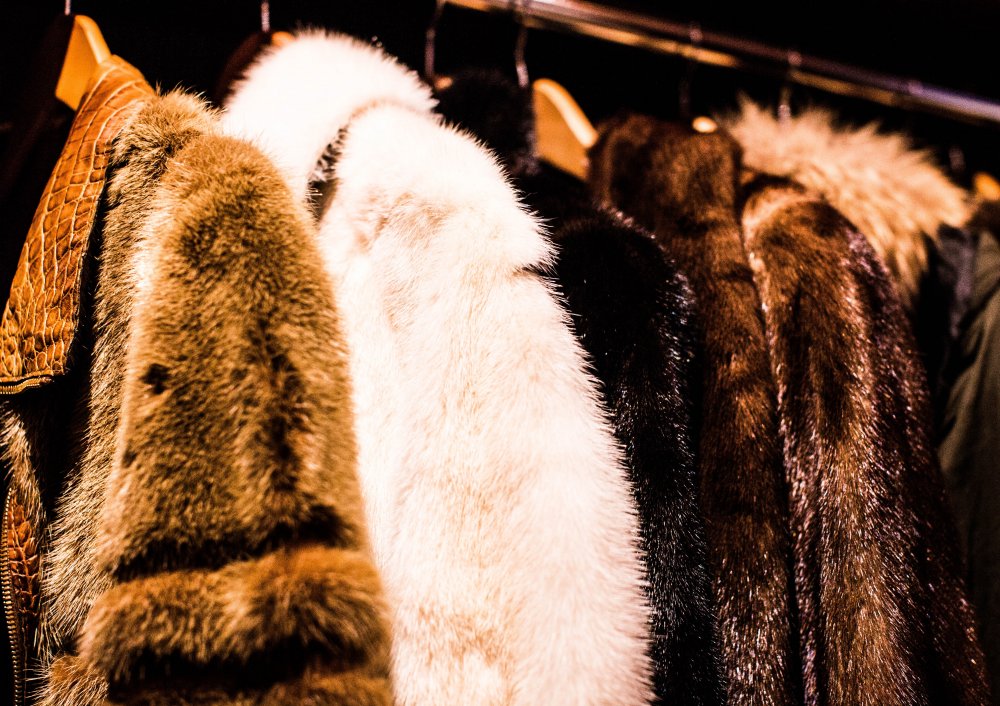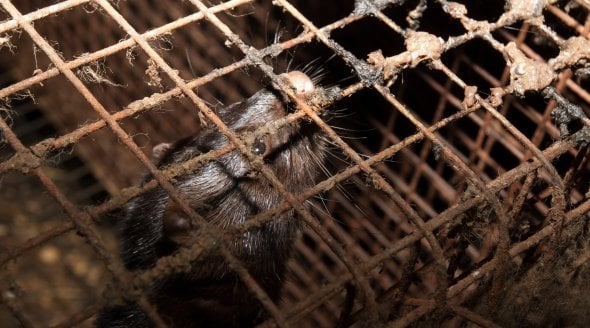PETA US Is Taking Calls for a Fur Ban to the Farfetch Boardroom
On the day that the UK-headquartered online fashion giant Farfetch was listed on the New York Stock Exchange, PETA US became one of its first shareholders – a move that will allow the animal rights organisation to attend the company’s annual meetings and officially urge it to end the sale on its website of vile fur products, including those made from foxes, coyotes, chinchillas, and badgers. The retailer also continues to sell fur garments for children, even though PETA has alerted it to the documented dangers that contact with these chemical-laden pelts pose to developing immune systems.
Behind every mink jacket, raccoon-trim parka, and rabbit-fur pom-pom hat on the Farfetch website is a lifetime of misery and a violent death. The majority of fur sold today comes from factory farms, such as those in Europe and China, where animals are confined to tiny wire cages and denied the opportunity to do anything that’s natural and important to them, such as playing, running, finding food, and raising a family.
The stress of this extreme confinement causes many to go insane, and fighting, self-mutilation, and cannibalism are common. At the end of their short, miserable lives, they’re killed using ghastly methods, such as gassing, electrocution, and drowning. Some are even skinned alive.
In the wild, animals are caught in steel-jaw traps that slam shut on their limbs, often cutting to the bone, and they can suffer for days from blood loss, gangrene, and attacks by predators before being shot or bludgeoned to death. Despite this immense cruelty, Farfetch has yet to commit to a fur ban.
The fur industry is headed for the history books, as modern, high-end designers are saying no to pelts and yes to beautiful and innovative vegan fabrics that are kinder to animals and the environment. A survey revealed that 95 per cent of Britons would never wear real fur, and top designers including Vivienne Westwood, Versace, Gucci, Stella McCartney, and, most recently, Burberry have policies against using it in their collections.
There’s no excuse for Farfetch to continue to allow unscrupulous labels to peddle cruelty on its site. Last year, PETA commended rival luxury retailer YOOX NET-A-PORTER GROUP for banning the sale of fur across all its websites in response to calls from customers. Although PETA has met with Farfetch executives, the company has not yet made the same compassionate and business-savvy decision.
What You Can Do
Farfetch also allows the sale of products containing angora – the soft fur of angora rabbits. These animals are typically plucked while they’re still alive, as many as four times a year. Please speak out against this cruelty by asking Farfetch to pledge to stop selling fur and angora.







